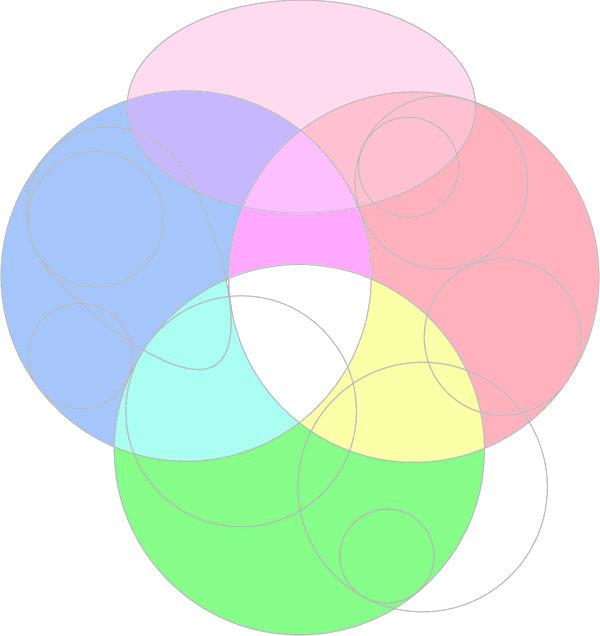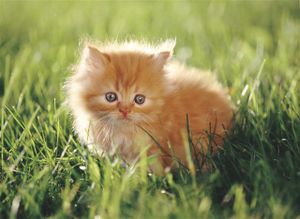Kitten Vaping
Kitten Vaping is the act of vaping kittens' souls. While undeniably very similar to kitten huffing, kitten vaping has the significant difference of not requiring the purchase of undepleted kittens, lowering the investment necessary to start taking part within the formerly bourgeoisie-limited practice.
First invented in 2018 by Dr. Liao Jing, a Chinese doctor, the practice of kitten vaping was successfully commercialized and became especially prevalent during the coronavirus pandemic of 2020, and eventually surpassed the popularity of traditional kitten huffing, thanks to its lower price point. Critics lauded the simplicity and affordability of the newly introduced drug, yet have blasted kitten vaping as dangerous to personal safety, as well as being significantly less enjoyable in general.
History
Early developments
Back in the early 2000s, when Avril Lavigne songs were loaded on everyone's iPods, the popularity of kitten huffing was just beginning to skyrocket, thanks to the continued efforts of various advocacy groups and word-of-mouth conversations. Unfortunately, the number of kittens depleted on a daily basis eventually led to a point where young ocelots, hamsters and lion fetuses were being misleadingly sold as kittens.
In early 2006, the Canadian Kitten Huffers Association started researching a method to create artificial kittens. While initially, their efforts were focused on cloning orange kittens, the most expensive variety of kitten available at the time, their efforts soon failed because of a PETA-endorsed law forbidding animal cloning. Later that year, Dr. T. Chen, a natural medicine researcher, seeing the success of Ruyan's new electronic cigar, saw a business opportunity within the creation of artificial kittens. By early 2007, the first vials of kitten essence had been synthesized in an underground lab in Beijing; however, it failed to appease various test subjects, who claimed it "repulsive" and "worse than tiger meat". Exhausted by his work, Dr. Chen sold his work on artificial kittens to Dr. Liao Jing, a Chinese immigrant and an avid kitten huffer for a mere $3000 and a dozen bottles of beer.
Dr. Liao Jing, who was much more experienced in many different techniques of kitten huffing, sought to recreate the effects of a perfectly executed tummy huff, without the risk. After paying out-of-pocket for a kitten breeding facility, and having successfully extracted a few souls from a few unlucky victims, he managed to have a breakthrough. When a depleted kitten soul is bathed in 70% isopropyl alcohol for long enough, the soul regains its structural integrity. By early 2010, a contraption utilizing this method of kitten soul preservation had been invented. The first prototype kitten vaping device, or "e-kitten" (as called by Dr. Jing), used a 3.10 cc chamber filled with isopropyl alcohol, which was then strapped to a felioca-style filter; the entire contraption was then strapped onto a glass tube. This approach had the significant disadvantage of being wet, unlike traditional "dry" kitten huffing; wet kitten huffing often resulted with the kitten's soul smelling more like cat urine than anything else. It was also illegal to sell to teenagers because of its edible alcoholic content. Dr. Jing chose to not commercialize this method, because the popularity of traditional kitten huffing was declining, and he figured "there's enough cats for all the huffers in the world."
First generation
The first generation of kitten vaping products came to fruition around the middle of 2018. Ever since approximately late 2017, the popularity of covert kitten huffing started rebounding, as some scientist stated in his research paper; that scientist said that he "discovered" that because more and more depleted kittens were appearing near his residence.
Once Dr. Liao Jing got his hands on the paper, he sought to start creating a cheap yet effective e-kitten device, in order to, accordingly to himself, "bring the joy of kitten huffing to everyone", and also (of course) make a sizeable profit. Using his prototype, which has degraded somewhat from oxidation over time, he assembled a new vaping device using an integrated lighter; instead of having the kitten soul be preserved in alcohol and directly immediately to the user's mouth, the soul is now preserved in holy water, and when heated (via a simple mechanical switch), the water evaporates into a small chamber, allowing the soul to be freely huffed without any fear. The holy water also doubles as a cleansing device, allowing it to be used around twenty times before needing to be soaked and cleansed in alcohol.
The kitten soul is attached via a simple porous plastic cartridge, which can be treated with alcohol with the use of an alcohol bath. Unfortunately, this method means that the holy water will need to be discarded prior to any kitten renewal; however, it remains much more economical compared to traditional kitten huffing, costing around $15 per refill (compared to $500 per kitten).
The device, which was marketed under the name "eKitt" globally (except in China, where it was known as "Kitten medicine for happy"), retailed for $999, putting it on par with the iPhone X. The devices were manufactured by interned Chinese prisoners, as a cost-cutting measure. Cartridges with different kitten scents retailed between $199 and $499, because of the cost of producing the initial cartridge (and by extension, collecting a kitten soul). Despite these high costs, the eKitt became wildly successful, selling 8.8 million devices in the year following its release. Reviews were highly positive, and it became the "next cool thing" with teenagers in the United States, Canada and much of Europe.
Second generation
Following the success of the first-generation eKitt kitten vaping device, Dr. Liao Jing sought to create a new kitten vaping device, in order to beat out the success of the original. Early in 2019, the Chinese doctor founded a new company, "New Kitten Medicine for Happy Technologies Co., Ltd.", in order to assist with the manufacturing, research and development of new products.
Accordingly to a press release, this new device was to come in two different variations, one being cheaper than the other. The cheaper variant was made out of brightly colored polyethylene, whilst the more expensive one was made out of recycled tin foil. Much less is known about the second generation eKitt's development, because of fears of patent theft.
First announced in a full-page advertisement on various newspapers over the course of Turkey Day Ball 2019, the tin variant was released January 15, 2020, under the trade name "eKitt 2.0" globally (except in China, where it was known as "New kitten medicine for happy"), also retailing for $999. The devices were manufactured by hired low-wage workers in Sri Lanka, making it more expensive, but mass production enabled offsetting these costs. They function the same way as with the original eKitt, using identical cartridges, but are also able to accept distilled water instead of holy water, thanks to a new water cleansing mechanism that rendered the kitten soul stable; this made refills much more economical. This model sold around 14.6 million units throughout 2020.
The plastic variant of the eKitt 2.0, marketed as the "eKitt Lite" ("Baby kitten medicine for happy" in China), was announced via a panoply of Defacebook ads throughout December 2019. It was released February 14, 2020, right on time for Valentine's Day, and retailed for $699; it is manufactured by the same slaveowner companies who manufactured the original eKitt. It contains the same features as the eKitt 2.0, but lacks the ability to use distilled water. This model fared much better than its more luxurious brethren, selling 104 million units throughout 2020, thanks to a new wave of popularity created by the COVID-19 pandemic.
In popular culture
| Huffing |
|---|
 |
| All About Huffing |
| Types of Huffing |
| Notable Huffers |
| Anti-Huffing |
| Other Huffs |
Kitten vaping did not enter the mainstream culture until the COVID-19 pandemic began. The fast-spreading nature of the virus and the ability for kittens, both depleted and non-depleted, to transmit said virus, made many people fearful of huffing kittens. As such, public awareness of a "new way to huff kittens" exploded on the Internet.
Following a data breach that occurred the preceding year, videos of 67.121.74.131, a pastor who introduced the practice of kitten huffing to Uncyclopedia, surfaced on TikTok. As with all things these days, what was initially described as a fad quickly transcended social media, translating into millions of eKitt devices and clones being sold. The user, covered with a hole-punched face mask, stated the following:
| “ | Kitten vaping is the greatest alternative to kitten huffing ever invented. It is well known that eating [huffing] kittens has its side effects, but kitten vaping gets rid of all of these. Even though the soul doesn’t taste perfectly authentic, the improved safety offered by kitten vaping [compared to the cupped-hands approach] is undeniable. | ” |
— 67.121.74.131, via TikTok, published 2020-04-03
| ||
It was later revealed that this enactment of 67.121.74.131's speech was fake, but by then, the power of the Internet and social media has already done its job.
By May 2020, kitten vaping had been attempted by several celebrities, including Michael Bay. A large number of teenagers and young adults, forcibly isolated due to COVID-19, ended up ordering these new devices in order to alleviate any pain caused by mandatory quarantine. A "kitten vaping challenge" was developed during that time; one would need to attempt vaping (inhaling) the kitten as many times as possible within the span of ten minutes; the current world record stands at 219 huffs, by RAHB. Another challenge, the "direct kitten ingestion challenge" (DKIC), involved puncturing kitten cartridges, subsequently draining them of their contents and drinking the soul; this proved itself to be controversial, because of the high cost of kitten cartridges. Soon enough, drinking the kitten directly became a status symbol of sorts.
Third-party clones and alternatives
Several third-party clones of eKitt devices exist. The most notable ones include ProKitten, a midrange, lightweight, carbon fiber-based recreation marketed towards athletes; Kitten Jr., a low-budget ($399) reimagination of the original eKitt, marketed as a gateway drug alternative towards teenagers and preteens age 10 through 16, and the Euroikitten, an ultra-low-budget ($0 plus fees) 1-to-1 clone of the eKitt Lite.
Currently, no non-clone alternative to the eKitt exists; however, several corporations, including but not limited to EA Pharmaceuticals, Microsoft, and China, are in the process of developing proprietary alternatives. An open source project, gnuhuff, is also attempting to develop an alternative format to kitten vaping.
Many third-party flavors for kitten cartridges were developed. Whilst a few flavors were sold alongside the kitten vaping device, several new flavors, including "Bay State Blueberry", "Ford Model T Exhaust", and "Lava Rock & Ghost Pepper" were introduced throughout 2019 and 2020.
See also
- Euroipods
- Kitten huffing (the original)


